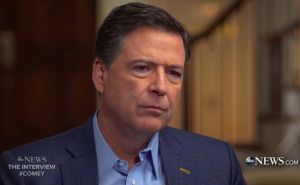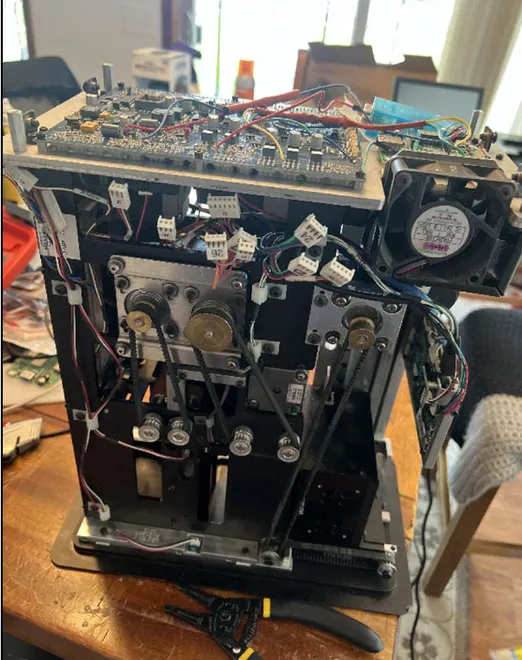
By Allan Lengel
ticklethewire.com
Ex-FBI Director James Comey delivered some damaging blows to the Donald Trump presidency during his Sunday night interview on ABC, calling Trump unfit for office and suggesting Trump obstructed justice when he asked that the Michael Flynn probe be dropped.
It was a welcome interview, and a candid one, that was needed under the circumstances with a president who has so little respect for boundaries, the truth and the rule of law.
But I still don’t buy Comey’s defense for saying far too much when he issued a statement in 2016 that there would be no charges in the Hillary Clinton case. Ditto for his explanation for sending the letter to Congress that he was re-opening the Clinton investigation. I don’t buy it.
Comey was a popular director beloved by many inside the FBI. He was a modern-day G-man, articulate and smart. But he did have an ego, as many in official Washington have, and sometimes he was a little too concerned about his boy scout image above all else.
First off, let’s get to the statement he made about the Clinton investigation in 2016. In Sunday’s interview he says:
“My view was– and this is a longstanding practice of the Department of Justice, that in rare cases, you should offer transparency so the American people can take a look at what you did and know that it was done in an honest, competent, independent way.”
There were certainly people inside the FBI, particularly in New York, who assumed the agency had enough to criminally charge Clinton. So, yes it’s understandable that Comey wanted to be transparent, defend himself and explain why he wasn’t charging. But right is right. Any federal prosecutor or agent knows you can’t announce that you’re not charging someone, then go on and trash them as if you just had.
It’s improper.
Then there’s the letter to Congress days before the election. The Justice Department policy is not to influence an election when at all possible.
Comey is asked by George Stephanopoulos: “If you knew that letter would elect Donald Trump, you’d still send it?”
Comey responds: “I would. I would. In fact, that was a question asked by one of my best people– a deputy general counsel in the FBI who is a very thoughtful and quiet person, who didn’t speak a lot. And that– that morning we were making that decision, she asked, ‘Should you consider that what you’re about do to may help elect Donald Trump president?’
“And I paused, and then I said, ‘Thank you for asking that question. That’s a great question. But the answer is not for a moment because down that path lies the death of the FBI as an independent force in American life. If I ever start considering whose political fortunes will be affected by a decision, we’re done. We’re no longer that group in America that is apart from the partisans, and that can be trusted. We’re just another player in the– in the tribal battle.”
Comey indicates his honor and the FBI’s honor was on the line and he had to tell Congress that there was a new development in the Clinton probe.
That being said, so too, on the line, was the integrity of the election.
He decided his image was more important than the election.
Plus, truth be told, he had a cover. The Justice Department told him not to send the letter, and technically, the Justice Department is his boss.
If he had gotten grief from members of Congress about not notifying them of the new development before the election, he could have said he wanted to but the Justice Department told him not to.
All that being said, Comey gets kudos for helping bring more transparency to a troubled presidency.





